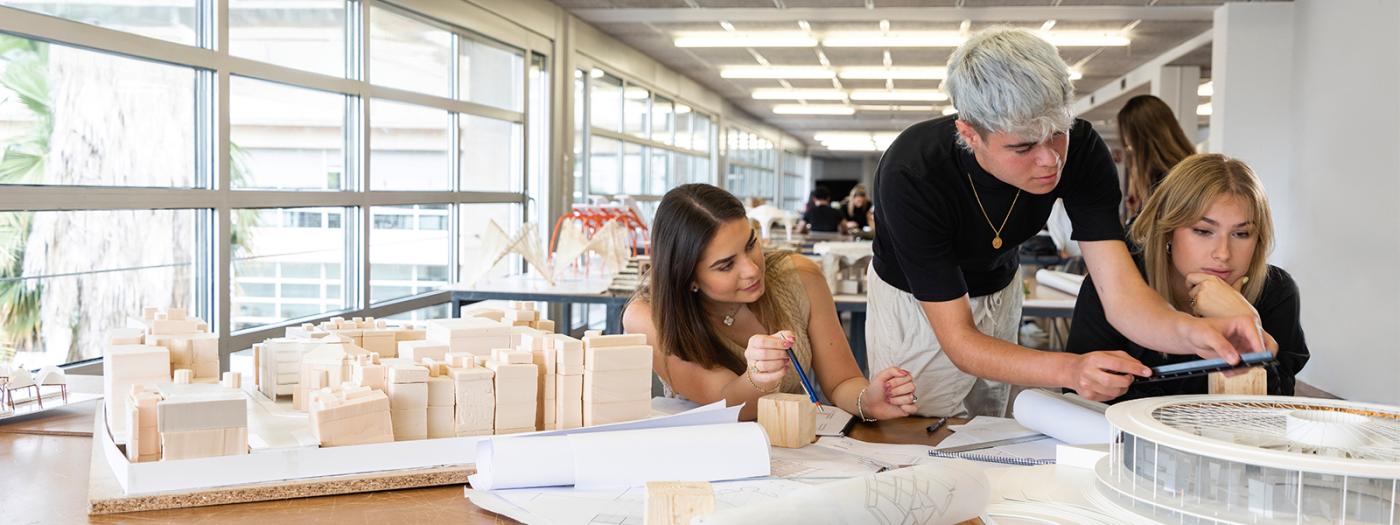Titular Professors
Physical and mathematical principles.
Building knowledge, materials and equipment.
Knowledge about the energetic behavior of buildings.
Knowledge of the buildings' own facilities.
Basic skills of computer management.
Knowledge of expression through freehand drawing.
Manage new building technologies and participate in building quality management processes; perform energy efficiency analyzes, evaluations and certifications as well as sustainability studies in buildings.
Direct and manage the use, conservation and maintenance of the buildings, writing the necessary technical documents. Prepare studies of the life cycle of materials, construction systems and buildings. Manage the treatment of demolition and construction waste.
The subject pursues that the student is able to apply his technical knowledge to the analysis and certification of the energetic behavior of the buildings and that can complete this analysis with the design, the detailed study, the constructive knowledge and of management and planning of work of the implantation of the necessary facilities to obtain an energy-efficient building.
Intensification in the areas of equipment and media management, sustainability and renewable energies, environmental management, control and integral management of the process.
Analysis of sustainable options in construction / materials / installations / criteria / pre-dimensioning / forecasting-location of spaces / fires / rainwater and black / thermal and photovoltaic solar panels / air conditioning / electricity-lighting / acoustic and thermal conditioning / incidence technical code.
Based on the understanding of buildings as ecosystems -that receive energy from outside, are affected by them and release elements to the environment- we work so that these processes are developed as efficiently as possible.
The passive behavior of the buildings is studied and is completed with the efficient design of the facilities as a necessary support to guarantee the comfort and at the same time satisfy functional needs that allow the man to develop the daily life.
The architectural project is focused on the idea of ​​a mutable process that involves a large number of professionals and variables of different types, which end up in the built building. In this context, the facilities are considered as one more variable that, at the same time, provide comfort and services to the building, they must demand a correct design for their design that allows their proper functioning.
Total contact hours: 56%, 11.8 cr.ECTS
Total hours of work of the student: 44%, 9.2 cr.ECTS
Each of the installations is based on the response they offer to a logic of behavior based, in general, on physical principles, which must be known for their correct application.
There are theoretical and practical sessions that are completed with workshops about a job where knowledge is applied. The development of the exercise is done partially during school hours and is completed later by the student at his own time.
H. Projects: Development of sustainable projects (50% global note)
M. Correction of public and individual projects (30% global note)
J. Participation in class (20% overall grade)
The evaluation is based on the correct application and understanding of the topics studied, which is visualized both in the development and delivery or exhibition of the work and in the weekly workshop sessions where the casuistry and concretions of each exercise are discussed and studied. The student, by exposing their doubts and advances, demonstrates the knowledge they acquire. No exam is done.
Notes developed from the school of architecture itself.
All the bibliography of the preceding courses.
Arquitectura y clima, Victor Olgyay. Ed GG.
Fumadó, J. L. Climatització d´edificis. Ed. Serval.
Sol Power. Sophia y Stefan Behling. Ed GG.
ACA 2. Proceso de aplicación de Criterios ambientales en la arquitectura.
Catálogos técnicos de los fabricantes de los diferentes equipos que forman parte de los sistemas empleados.
Carrier. Manual de aire acondicionado.
Climas. Rafael Serra. Ed GG
Planejament i sostenibilitat. COAC. Generalitat.
La ciudad sostenible. Centro de cultura contemporeanea de Barcelona.
Código Técnico de la Edificación:
- DB HE Ahorro energético
- DB HS Salubridad
- DB SU Seguridad de utilización
- DB SI Seguridad en caso de incendio
